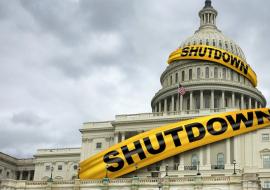Stagflation Threatens Puerto Rico´s Already Cornered Economy
Stagnant growth, higher costs, rising inflation, double-digit unemployment, reduced incomes, the threat of salary cuts and massive layoffs, and loss of confidence are putting Puerto Rico´s economy against the ropes.
The cost of living and doing business in Puerto Rico are literally going through the roof and threatening to only get worse off. The price of gasoline, water, electricity, food, medicine, tolls, and everything is on the rise.
In a 2005 study of cities prepared by Mercer Human Resource Consulting, San Juan was declared the most expensive city in all of Latin America and the Caribbean. This not only affects individuals, but it also impacts businesses, forcing many to pass on their costs to consumers who, in turn, are left with less disposable income, aggravating an already bad situation for Puerto Rico residents.
The problem of limited personal-income growth has been a part of the economic dilemma afflicting Puerto Rico since the 1970s. Furthermore, the island´s limited-income growth will only get worse, as the Commonwealth threatens to impose salary cuts by as much as 15 to 20 percent on a substantial number of government employees. Spending cuts also will affect numerous government agencies, consequently impacting the quality of services, already considered poor by many standards when it comes to productivity.
The private sector, in turn, faced with higher expenses due to increasing oil prices, utility rates, transportation expenses, and the cost of doing business, will be unable to absorb employees from the public sector who need additional income or are seeking alternative employment opportunities.
The domino effect resulting from the Puerto Rican budget challenges and obsolete economic model has backed the island nation´s economy into a corner. While the government can´t continue to spend as it has in the past, pushing the cost of living on the island even higher as public corporations adjust rates and taxes are increased to help resolve the fiscal crisis, salaries remain stuck and economic growth has become stagnant. The overwhelming situation easily can be described with one word, stagflation.














